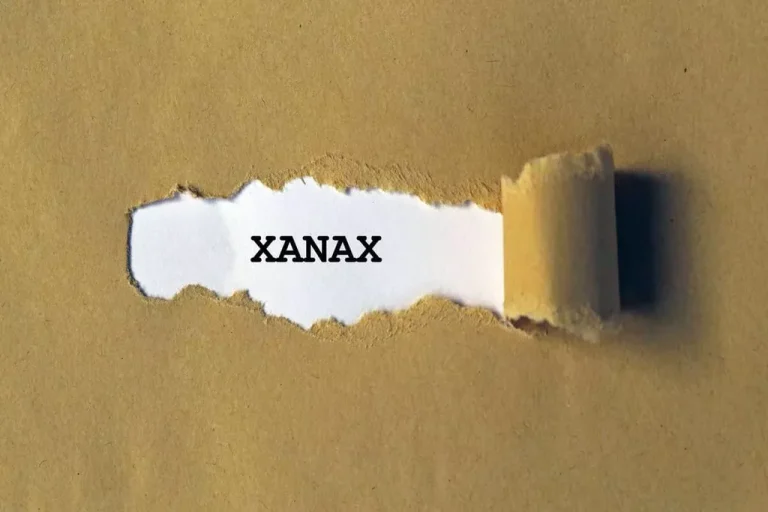
Substance abuse and mental health expert Terry Gorski has a nine-step relapse prevention plan that can help you recognize and manage relapse warning signs. Alan relapse prevention plan Marlatt, PhD, developed an approach that uses mental, behavioral, and lifestyle choices to prevent relapse. Healthy lifestyle changes support overall well-being and promote a successful recovery journey. Embarking on the journey to overcome addiction and maintain sobriety is both challenging and rewarding. A crucial aspect of this process is developing a relapse prevention plan to navigate the potential obstacles and setbacks along the way.
Exploring the Benefits of Substance Use Counseling

Relapse is a common challenge faced by individuals on the journey to recovery from addiction. Often misunderstood as a failure or a sign of weakness, relapse is better viewed as a potential, albeit difficult, part of the recovery process. It’s important to recognize that addiction is a chronic condition, similar to other long-term health issues like hypertension or diabetes, where setbacks are often a natural part of the healing journey. These factors combined with the stress of the crisis situation can create an environment ripe for relapse. Contact a healthcare professional if you or someone you know suffers from a substance use disorder.
Whole Health Library
These activities allow you and other group members to share experiences and foster camaraderie. Practicing mindfulness also Twelve-step program aids in dealing with triggers without using substances. It helps you break free from unhelpful thought patterns and focus on healthier alternatives for managing stress. Self-care means being mindful of negative or unhelpful thoughts that could incite relapse.
Remember, It’s Possible to Prevent Relapse
Our team of experienced professionals is dedicated to providing comprehensive https://ecosoberhouse.com/ care tailored to your unique needs. Contact us today to learn more about our programs and how we can support you in achieving lasting sobriety. Some common challenges in creating a relapse prevention plan include identifying triggers, finding healthy coping strategies, dealing with relapses, and addressing underlying mental health issues. To ensure long-term recovery, it is essential that individuals regularly review and adapt their relapse prevention plans.

If you’re a support group member, keep trusted group members or leaders’ information in your prevention plan. If you fear you are at imminent risk of relapsing, contact them immediately. Even positive events in life, like achieving a promotion or attaining sobriety goals, can unexpectedly lead to a relapse. MBRP aims to increase your acceptance and tolerance of your physical, emotional, and mental states.

Rather than relying solely on professional treatment providers, families are empowered to take an active role in supporting their loved one’s recovery. Addictive disorders are widely recognized as chronic conditions that often involve relapses. Recent studies from clinical treatments indicate that a significant majority, over two-thirds of individuals, experience a relapse within weeks to months of starting treatment.

Limit Exposure to News and Social Media
- There are different models and techniques to include in your relapse prevention plan.
- Statistics show that a significant number of individuals in recovery experience relapse, especially within the first year of sobriety.
- It allows you to break down your journey into manageable steps, making it easier to stay motivated and focused.
- Whether you are in the early stages of recovery or have been sober for years, the strategies discussed here can help you stay focused on your goals and prevent relapse.
- Recovery is a lifelong process, and setbacks are a natural part of this journey.
Simple mindfulness practices can help individuals manage their thoughts and feelings about addiction more compassionately. Incorporating self-care routines, such as exercise, proper nutrition, and hobbies, is equally important. These habits reinforce a positive mindset, creating a resilient framework for navigating the complexities of recovery. Keeping these strategies at the forefront of recovery plans fosters resilience and provides the tools needed to navigate challenges effectively. If you or someone you care about is facing challenges in maintaining sobriety, please reach out to a local rehabilitation center.
- Setting goals for a healthier lifestyle is also an integral component of recovery.
- By understanding these stages and developing proactive strategies, individuals can better prepare themselves to navigate challenges in their recovery and minimize the risk of relapse.
- Over time, addiction specialists and healthcare providers have designed more effective approaches for addiction recovery.
- In many cases, relapse is not necessarily a failure in treatment but rather an indication that further support or adjustments are necessary.
Evaluating the Effectiveness of Your Plan To Combate Against Triggers
It acts as a roadmap, guiding you through the ups and downs of your journey. By understanding the importance of a relapse prevention plan, you can increase your chances of long-term success and maintain a healthy, sober lifestyle. A robust support network is crucial for individuals recovering from substance use disorders. Support systems provide encouragement, accountability, and a sense of community, all of which are vital for maintaining sobriety. Having people to turn to in times of need can prevent feelings of isolation and provide reassurance during challenging times. Coping strategies are indispensable in managing cravings and preventing relapse.
- As far as people go, having an effective support network can make all the difference in recovery.
- Next, assess your history with substance use to determine your specific triggers, such as people, places, or emotional states that have led to past relapses.
- Surrounding yourself with individuals who understand and support your journey can provide you with the encouragement and accountability you need.
- Unravel how long it takes for the liver to heal and navigate your road to recovery with our guide.
- Our virtual outpatient treatment program is here to help if you or a loved one who needs additional support during times of crisis or the hereafter.
The patients were categorized based on their primary drug of abuse, such as alcohol, opiates, cocaine, and marijuana, excluding nicotine. By actively identifying and managing triggers, individuals bolster their defenses against relapse. Withdrawal symptoms like nausea, shakiness, and sweating can be so difficult that you want to use drugs again just to stop them. Medications can help you manage withdrawal symptoms before they trigger a relapse. Certain people, places, and situations can drive you back into drinking or using drugs again.